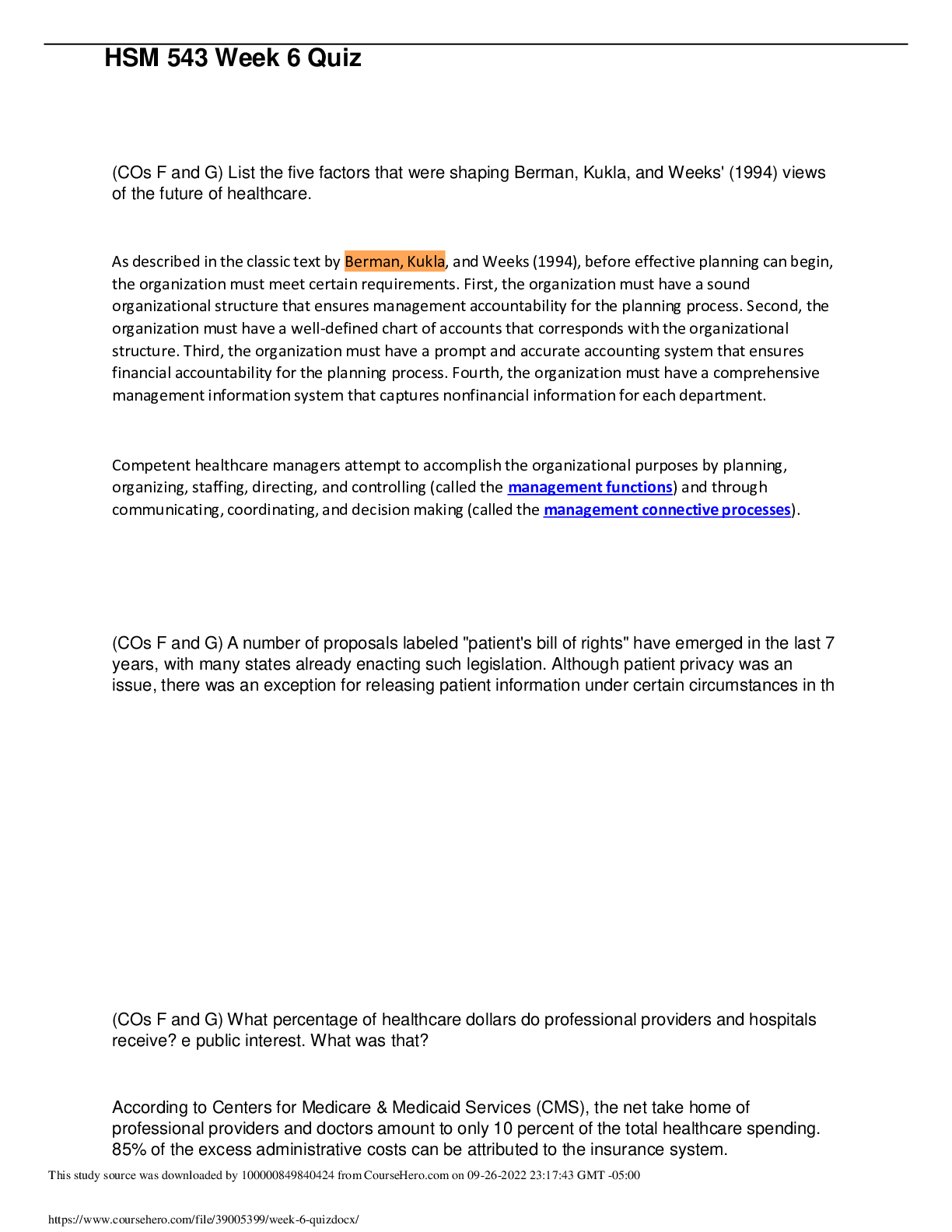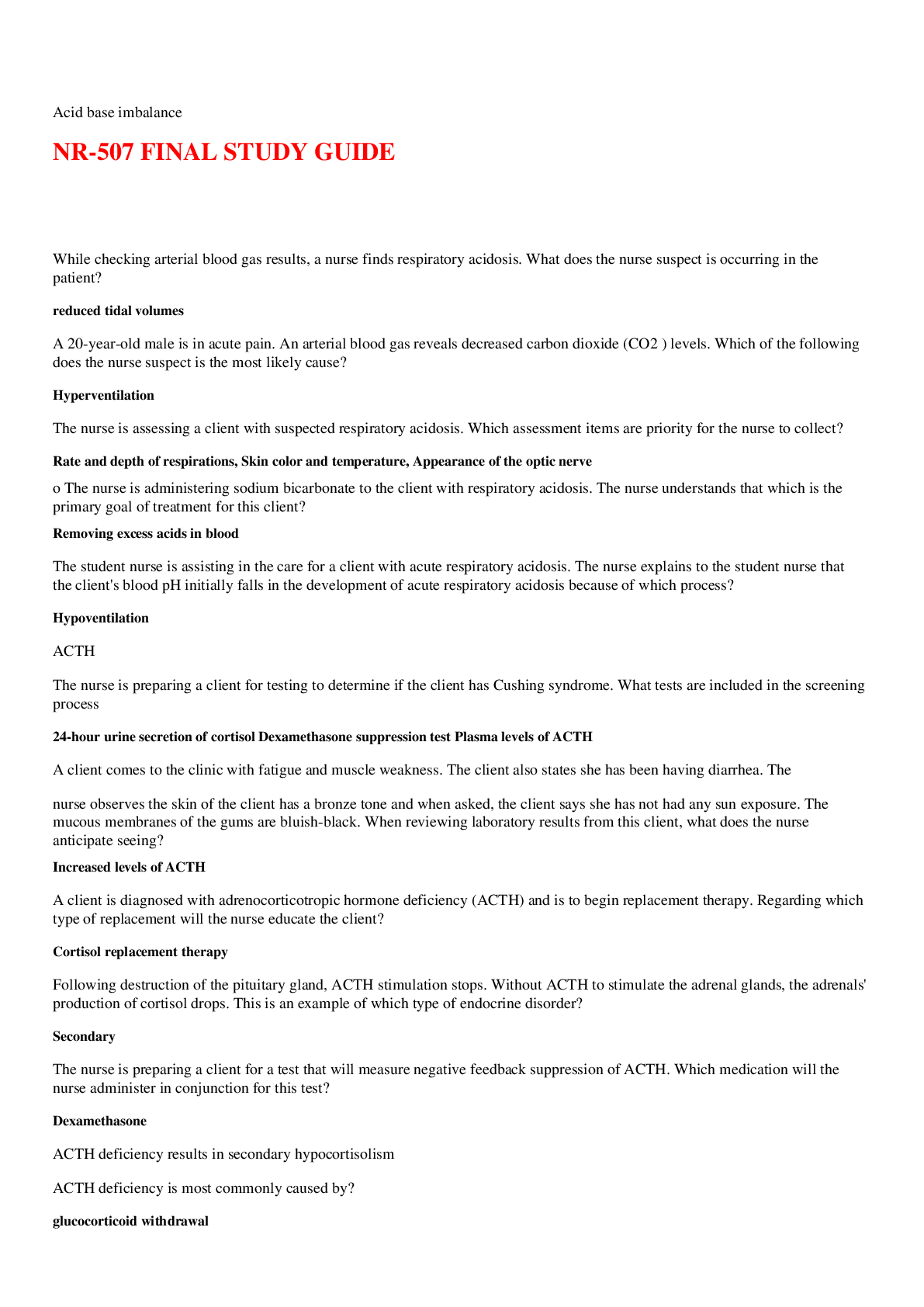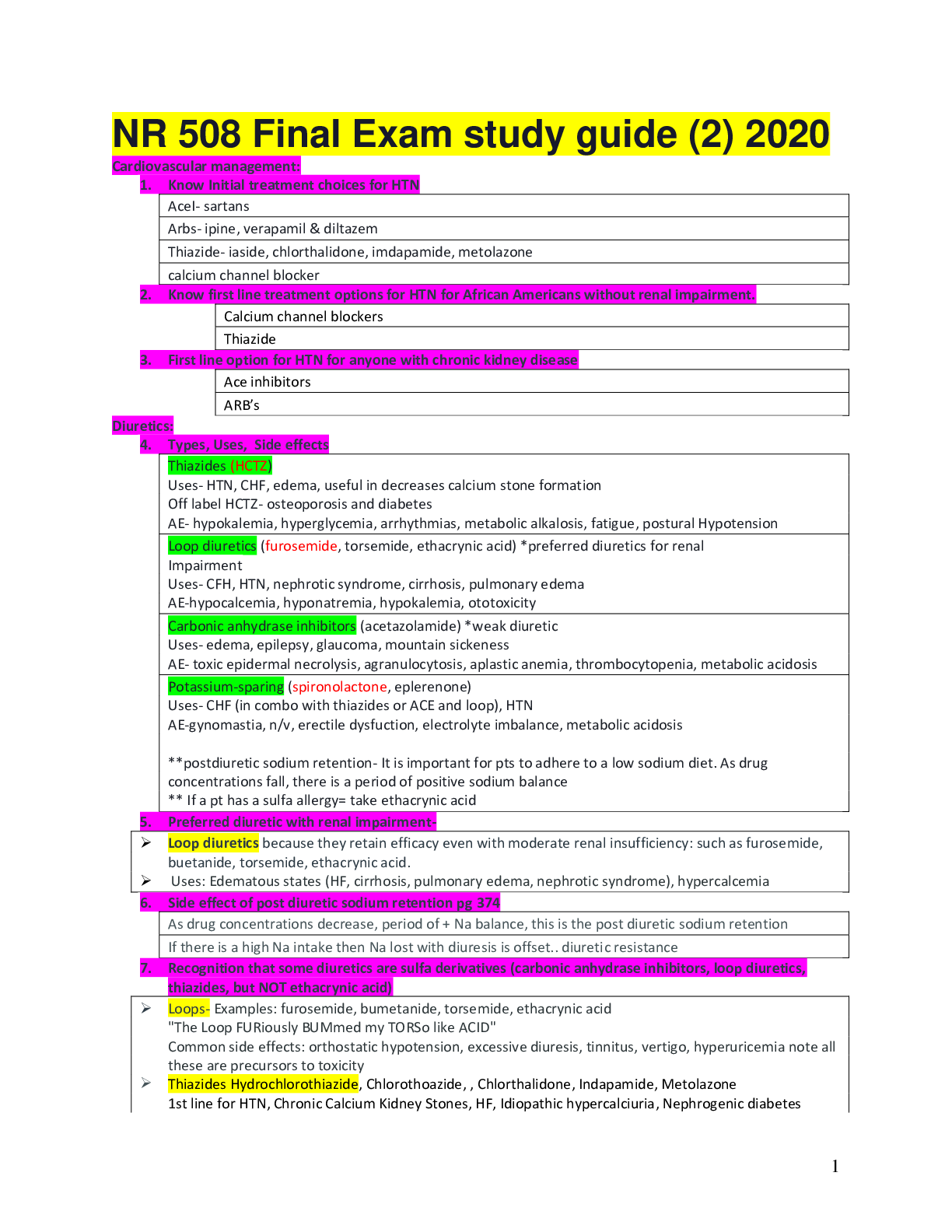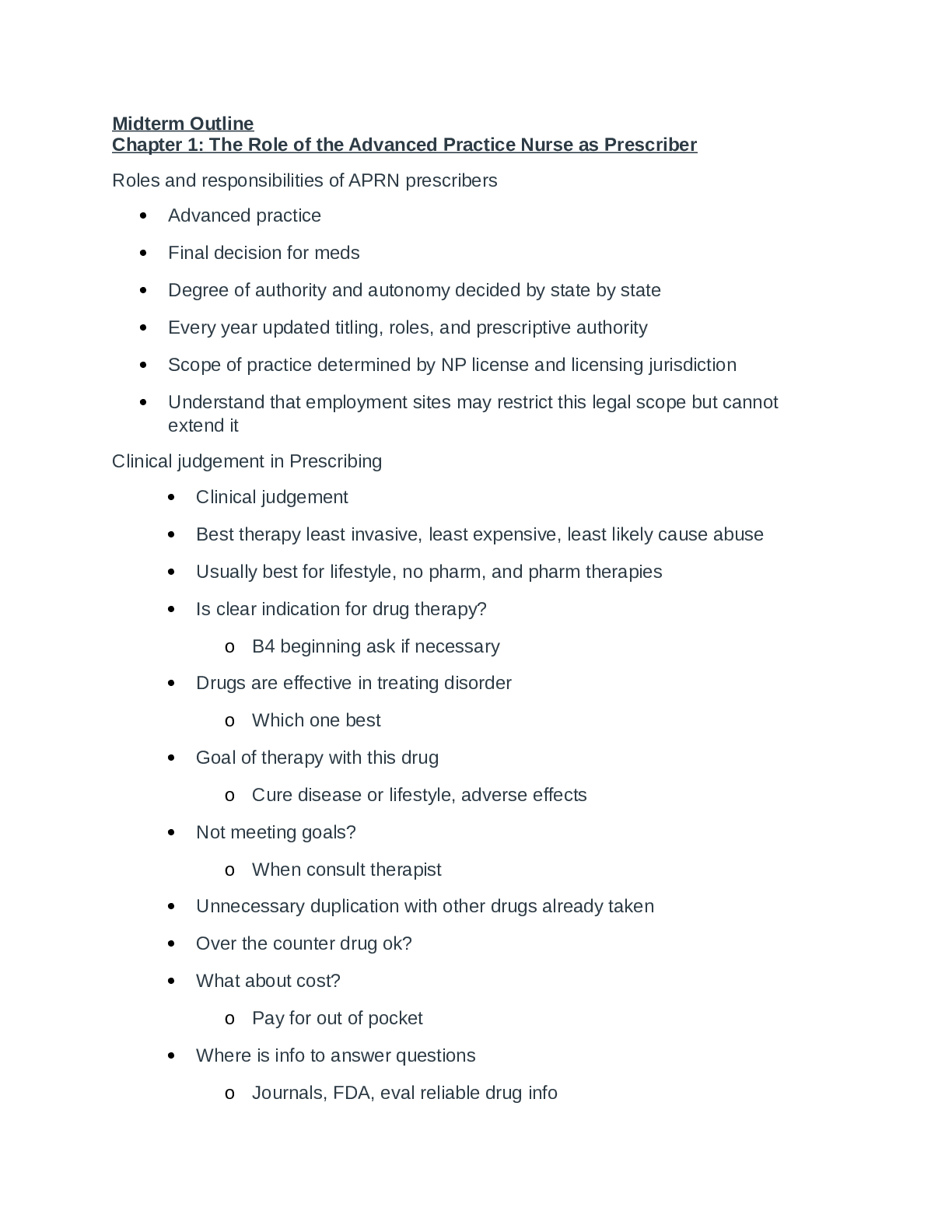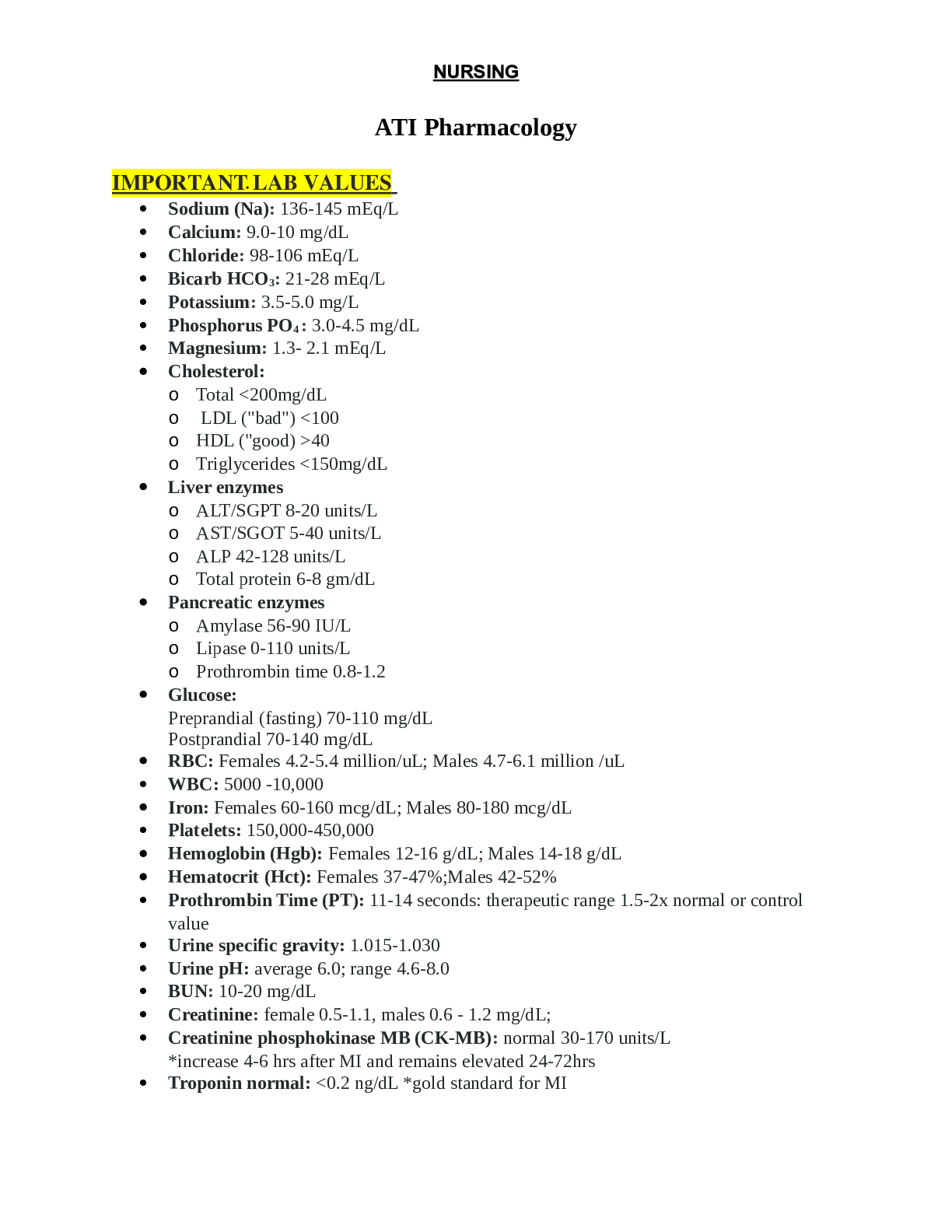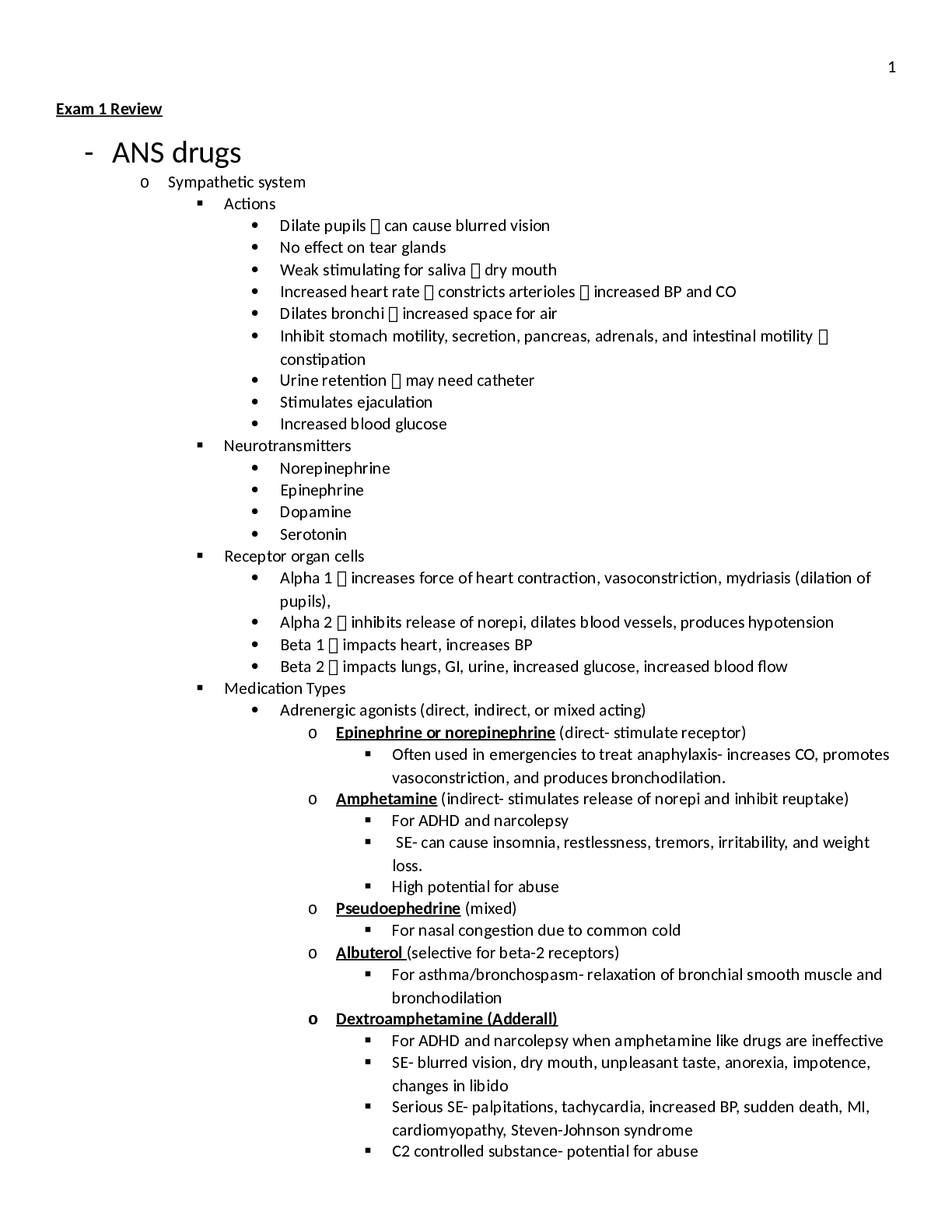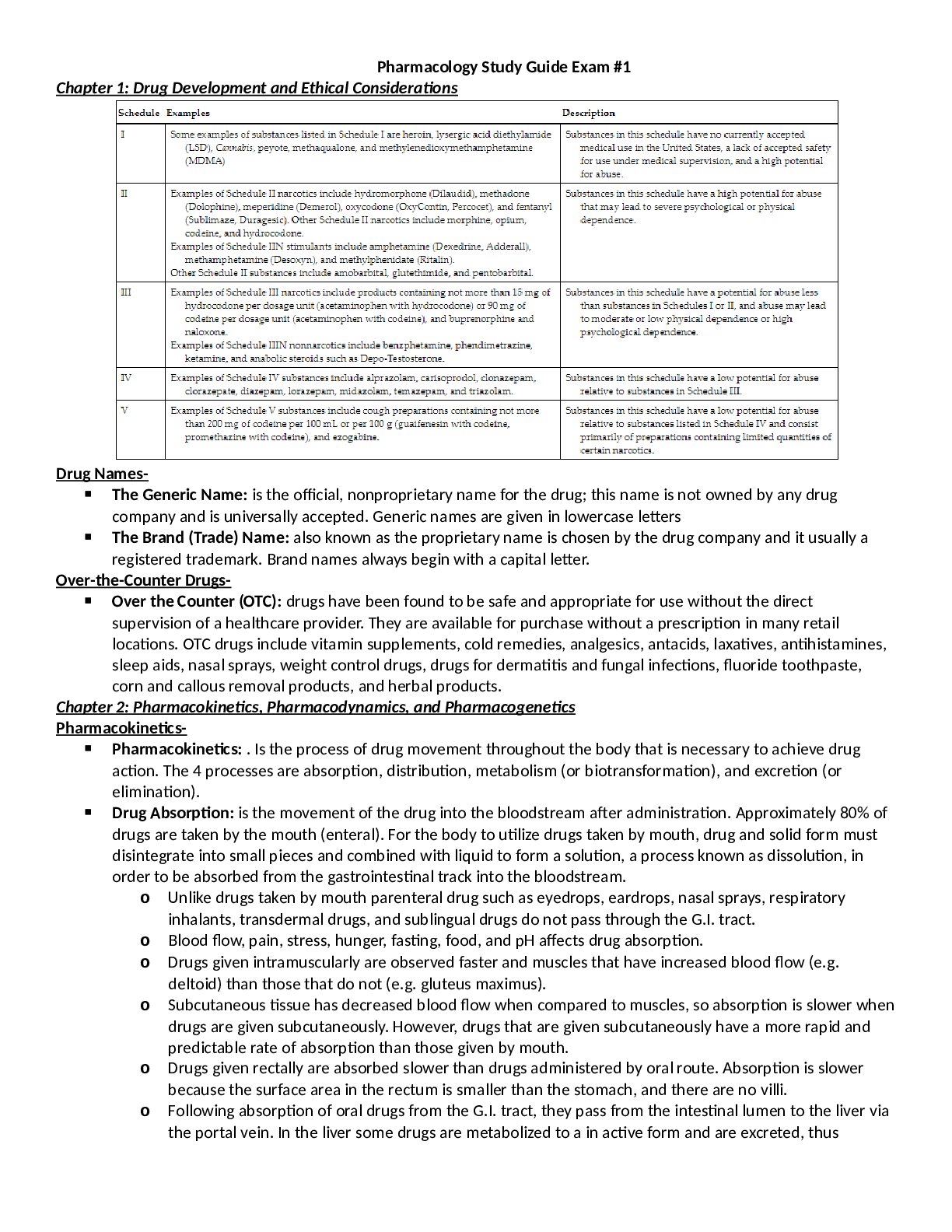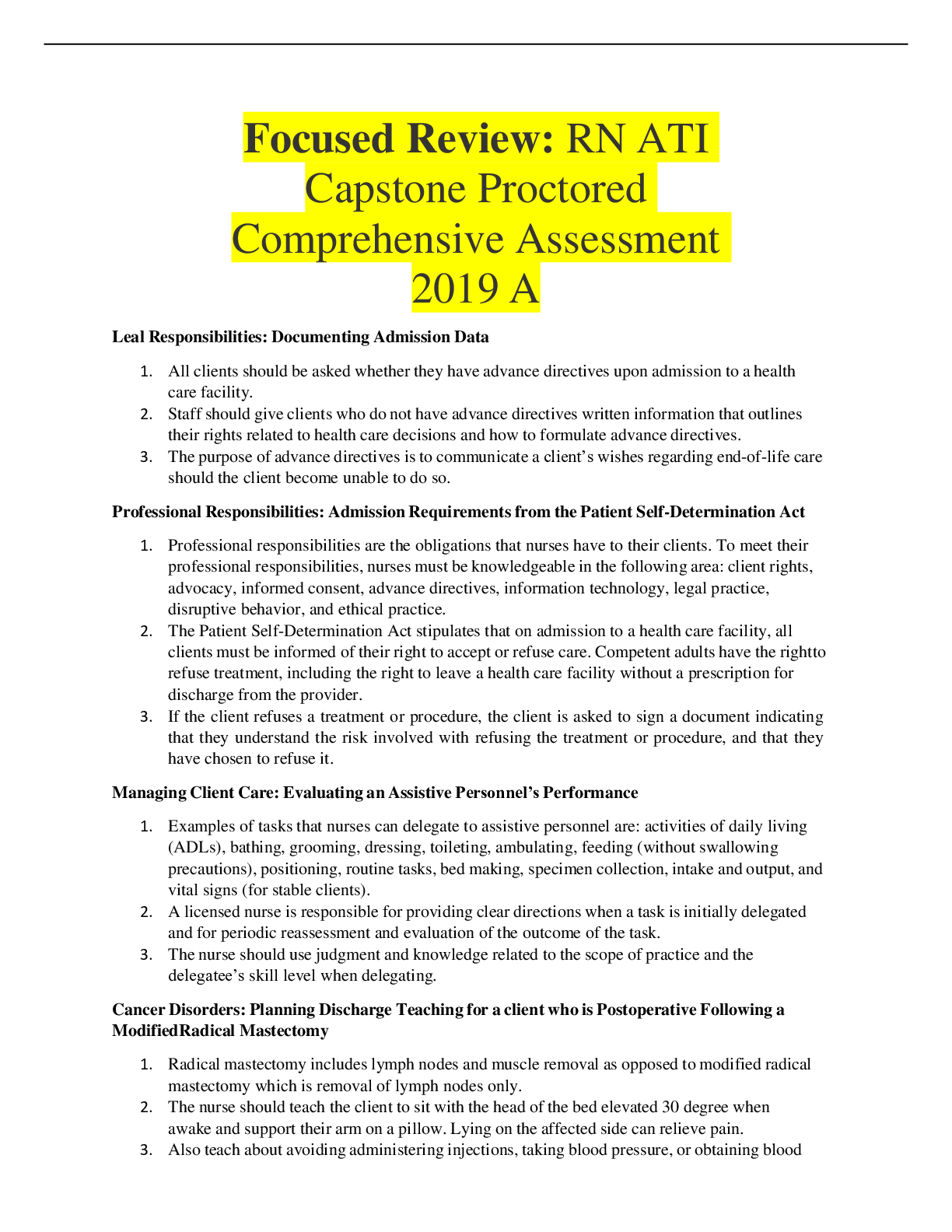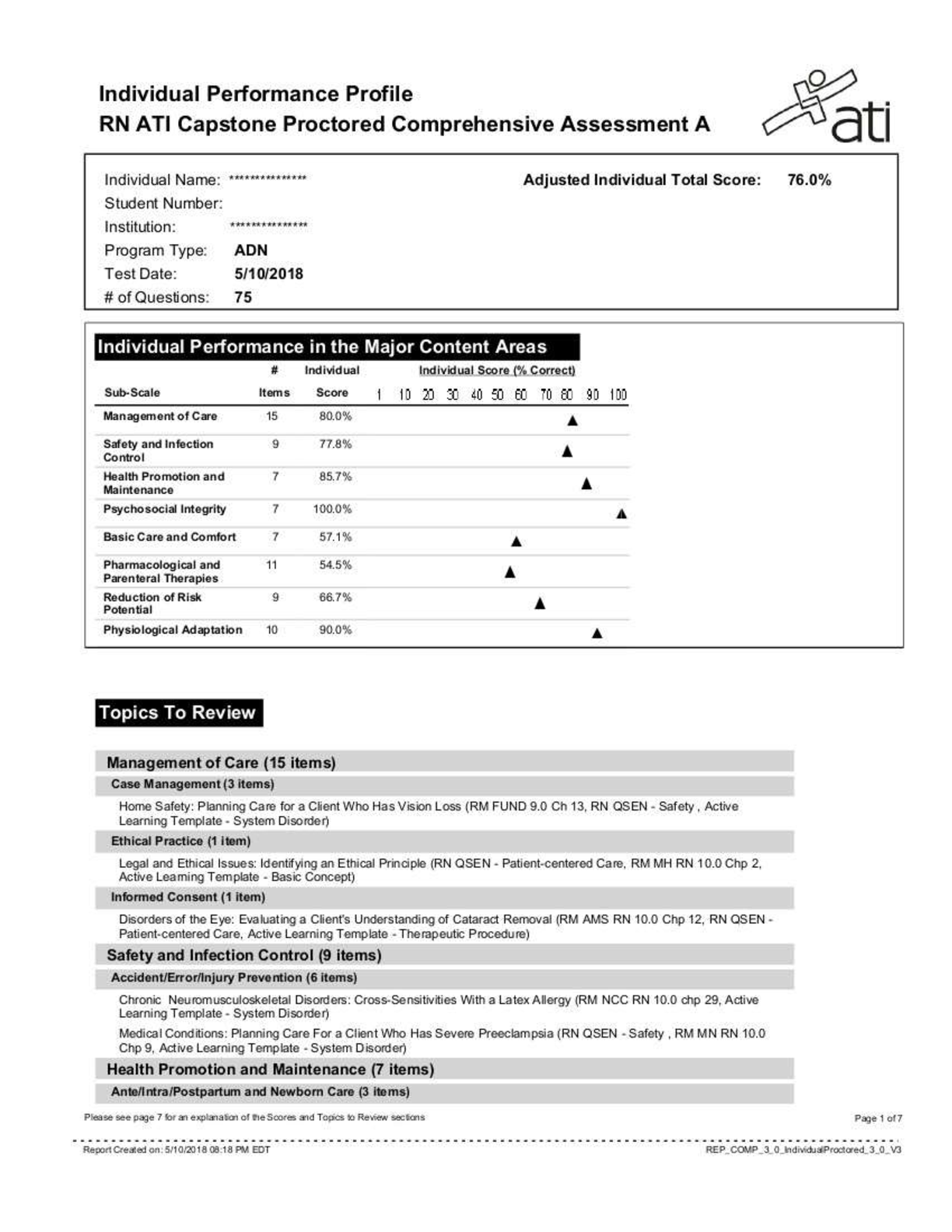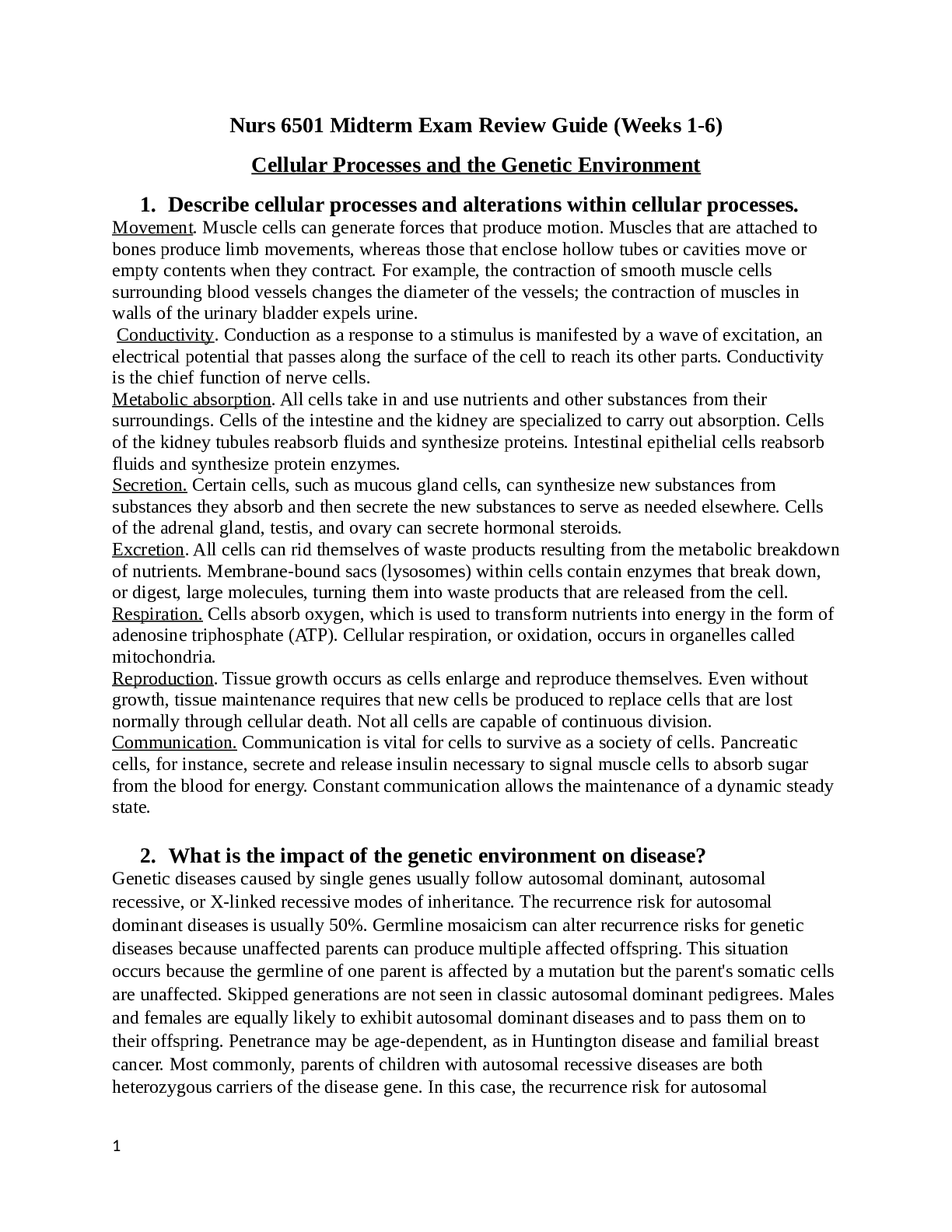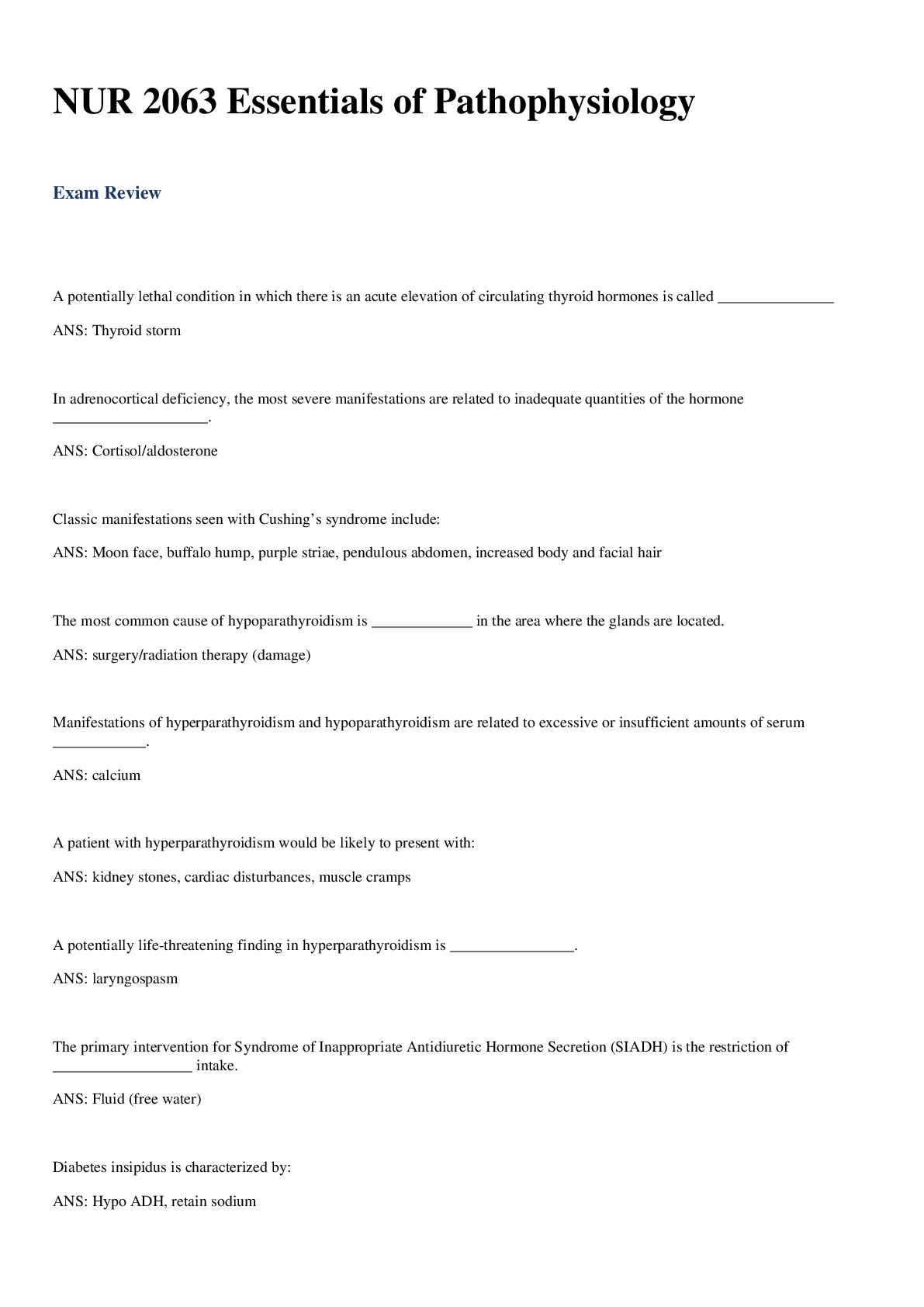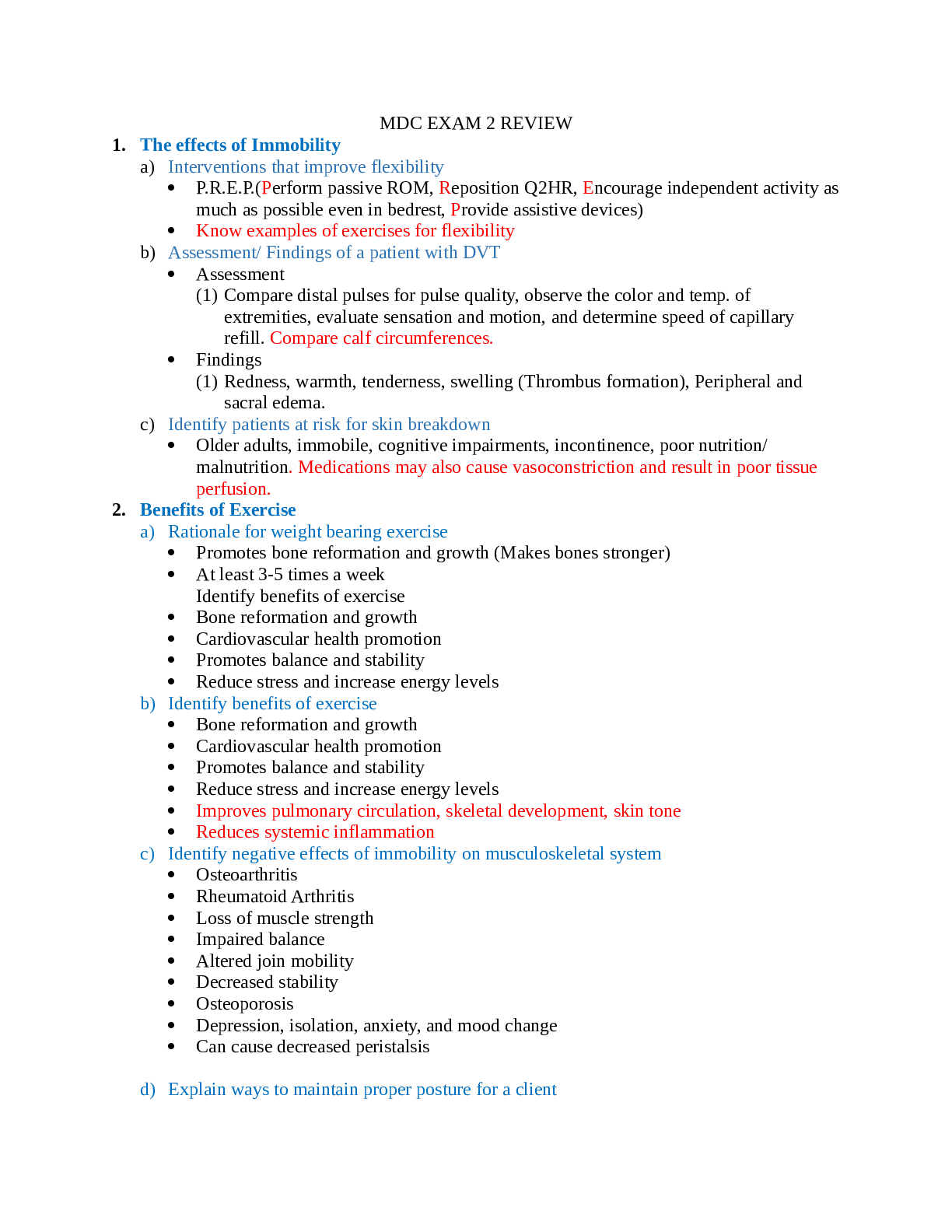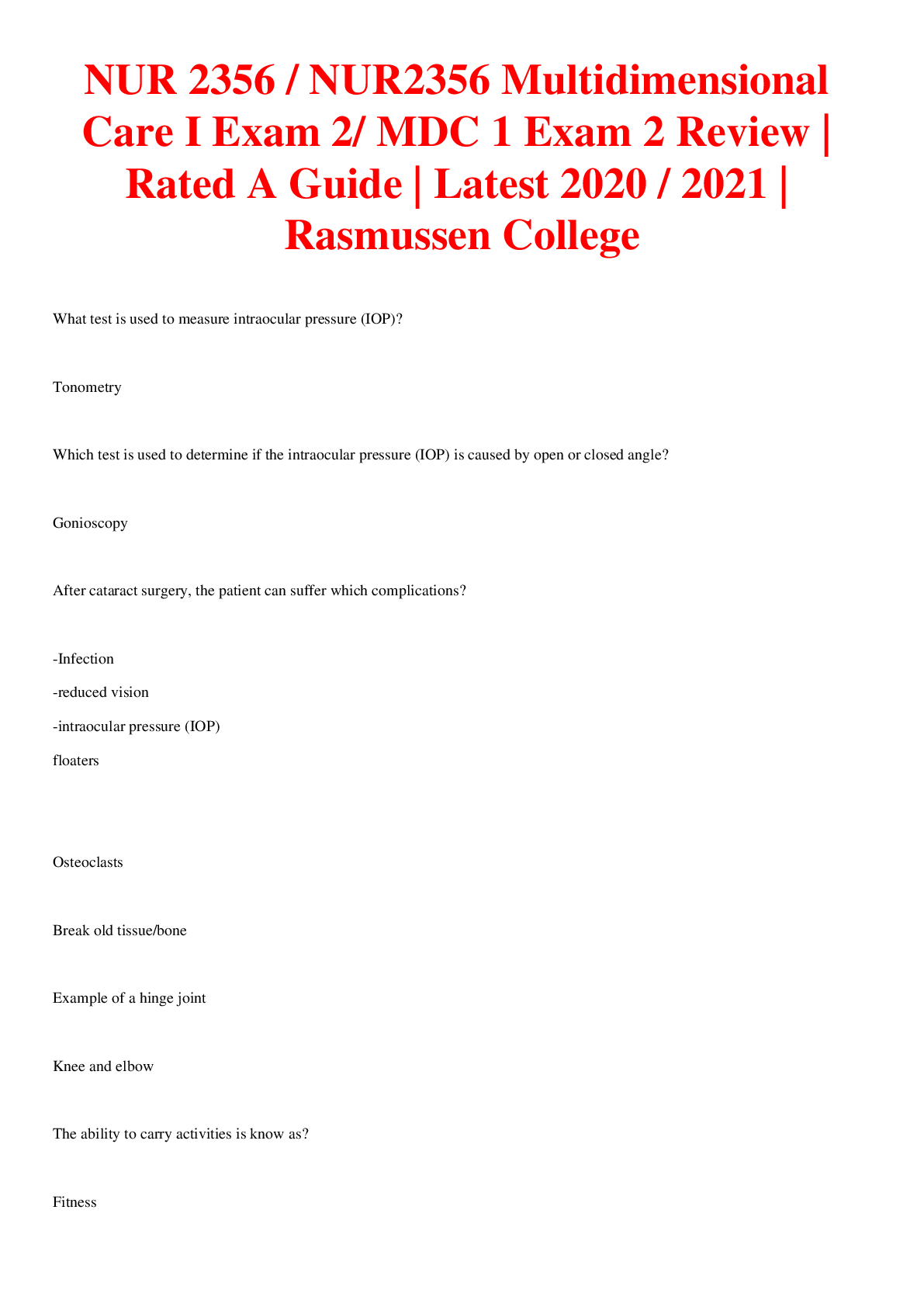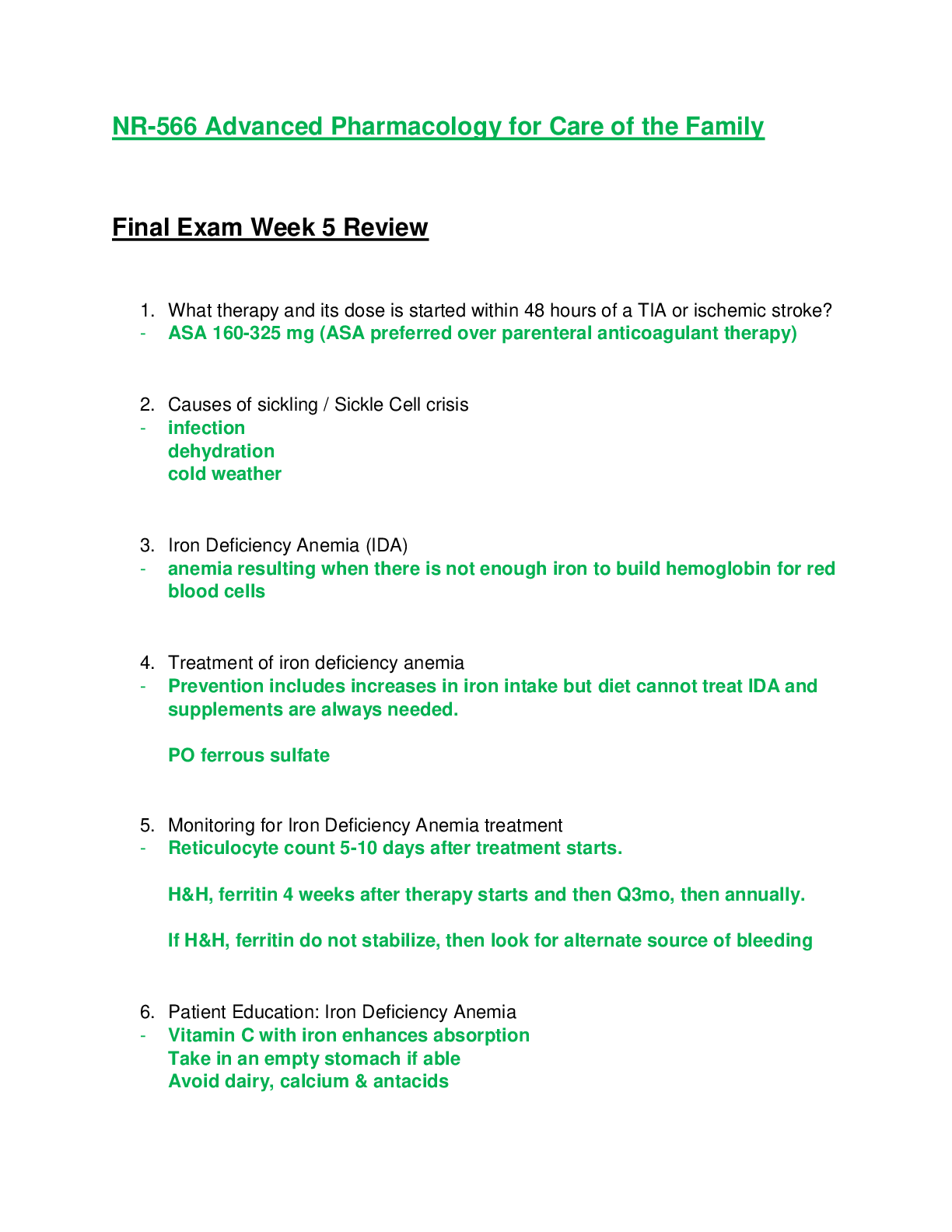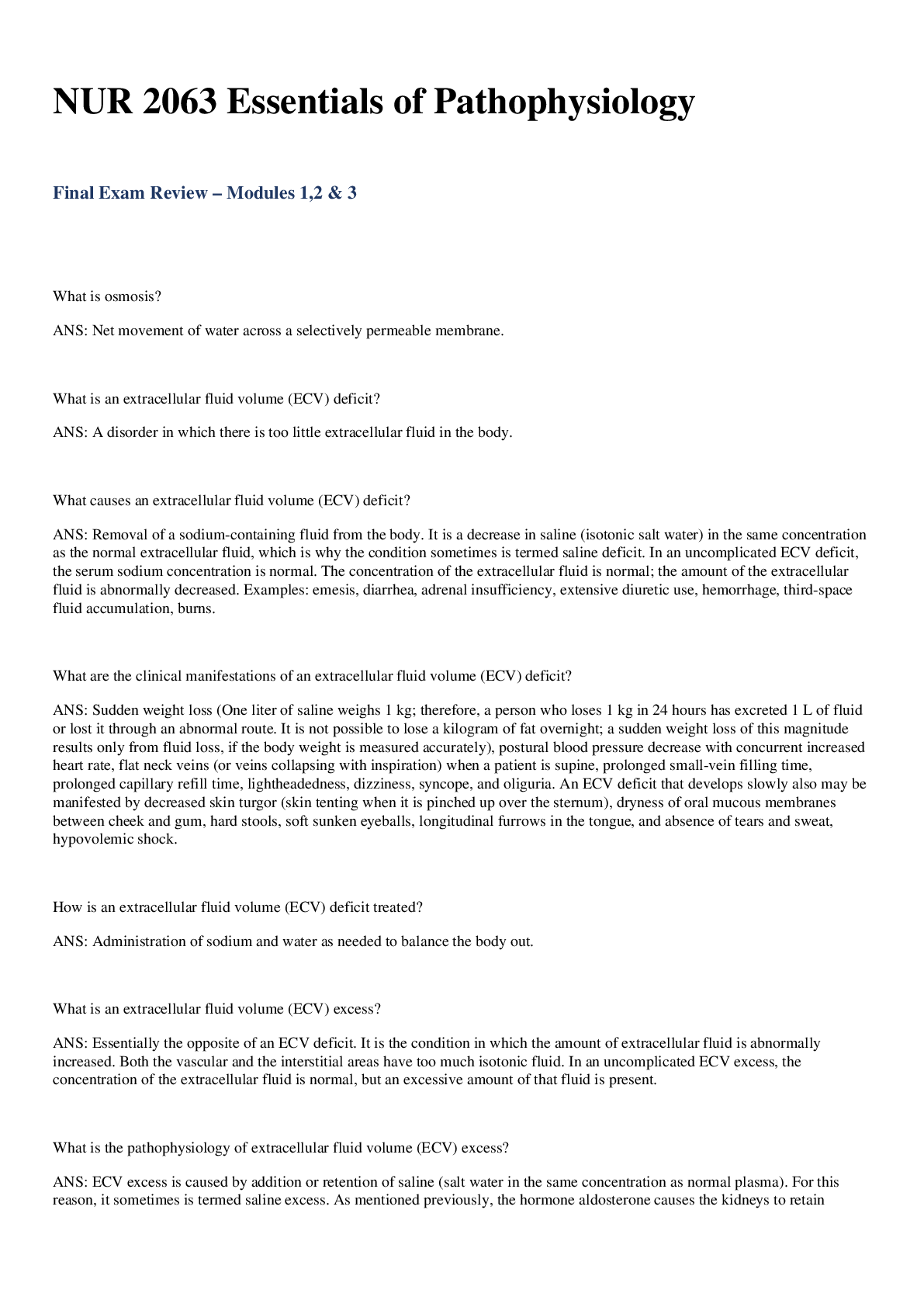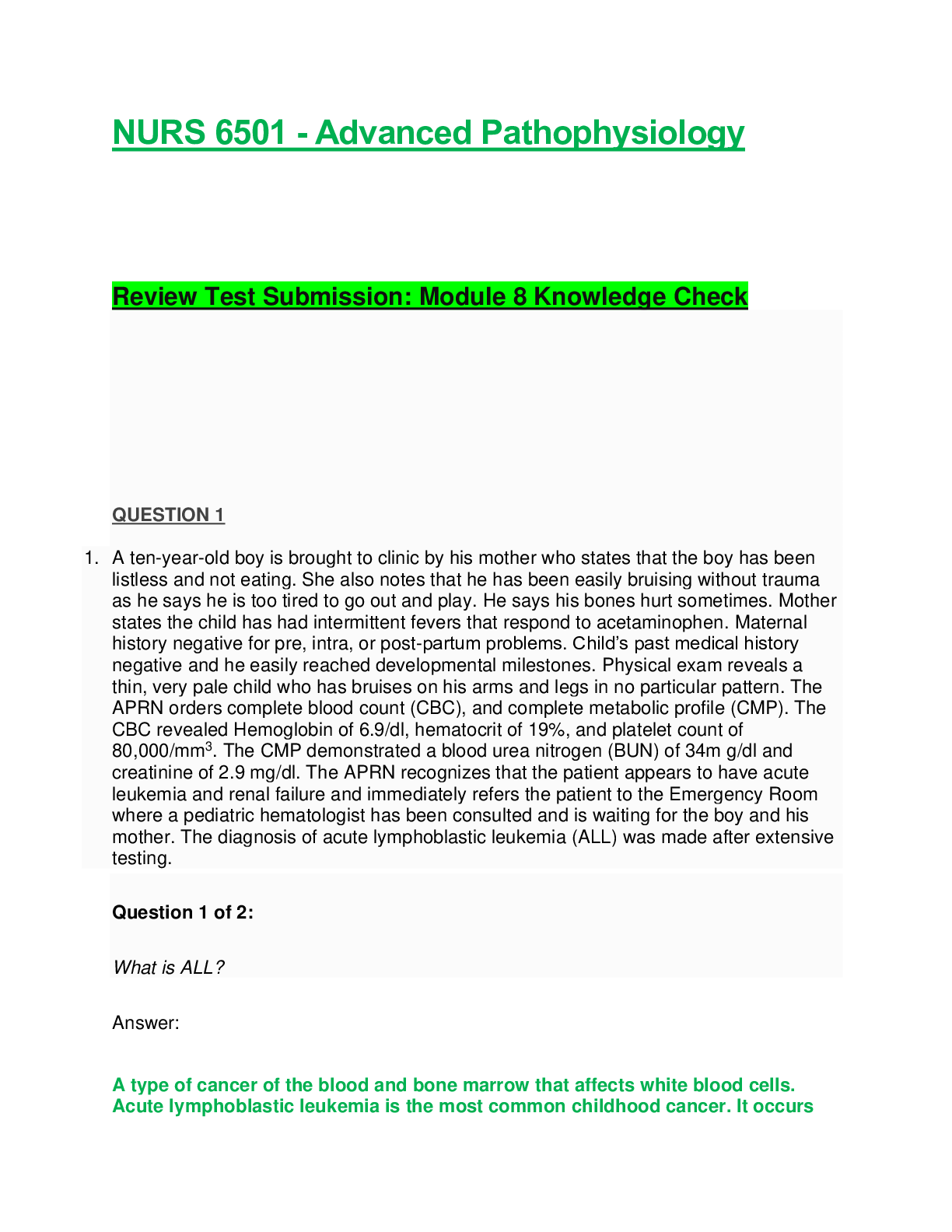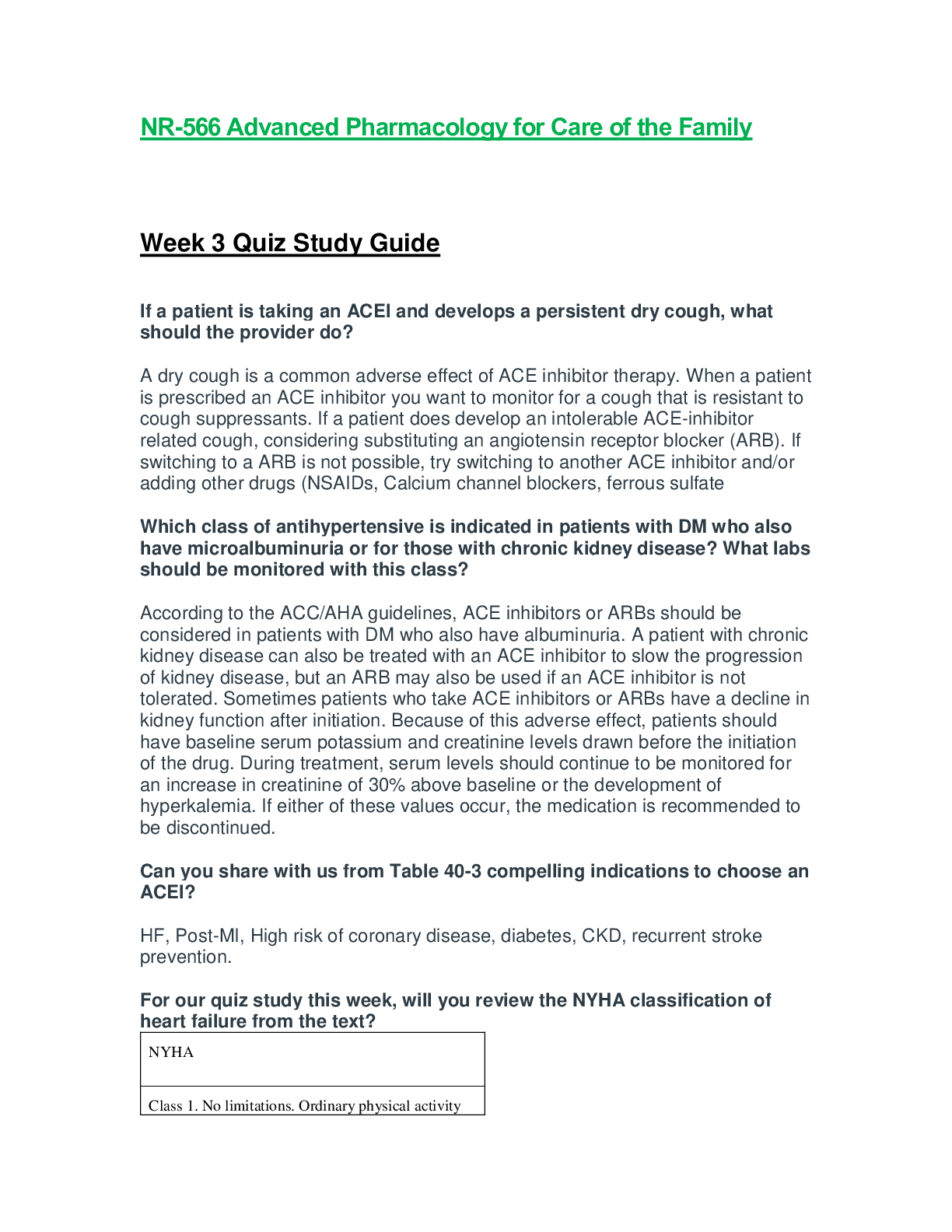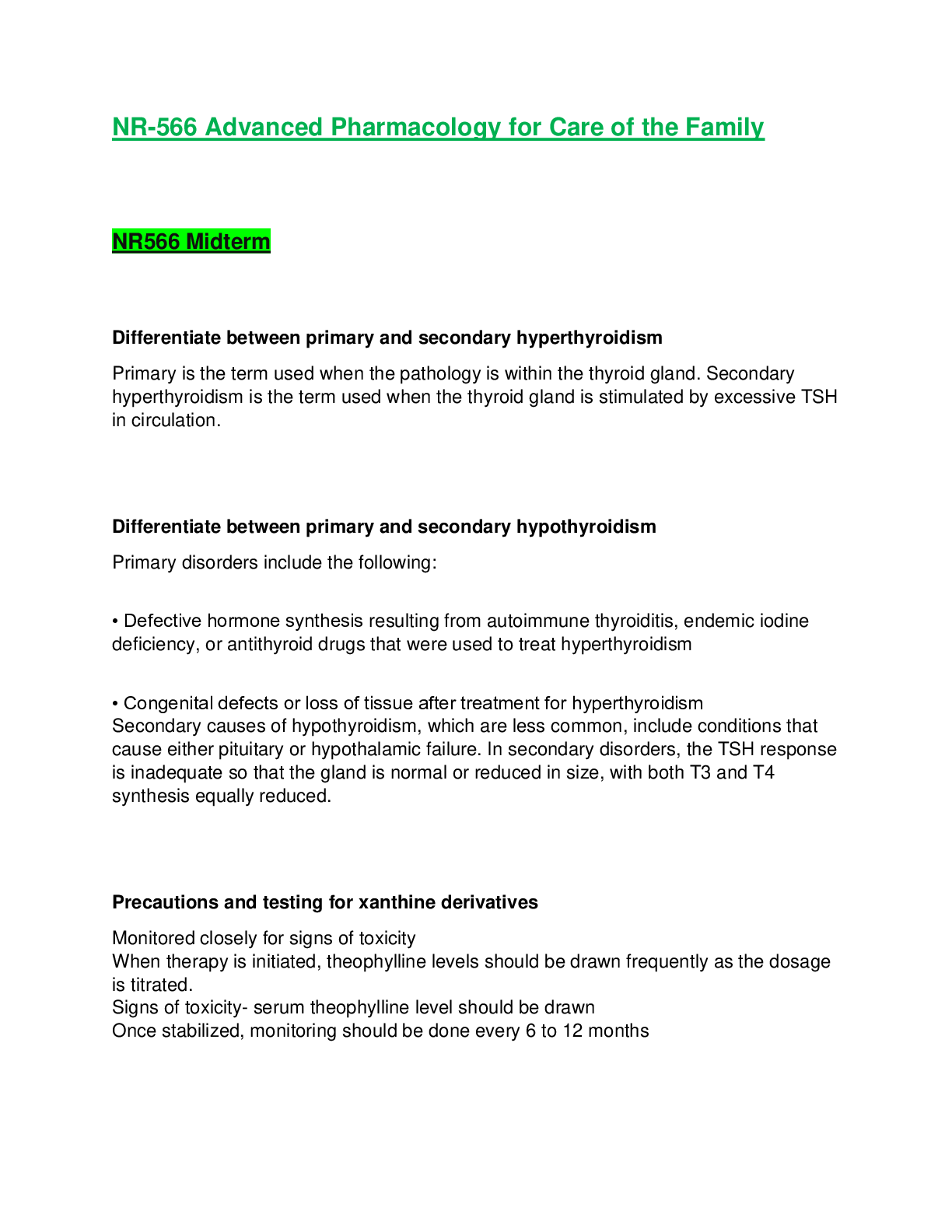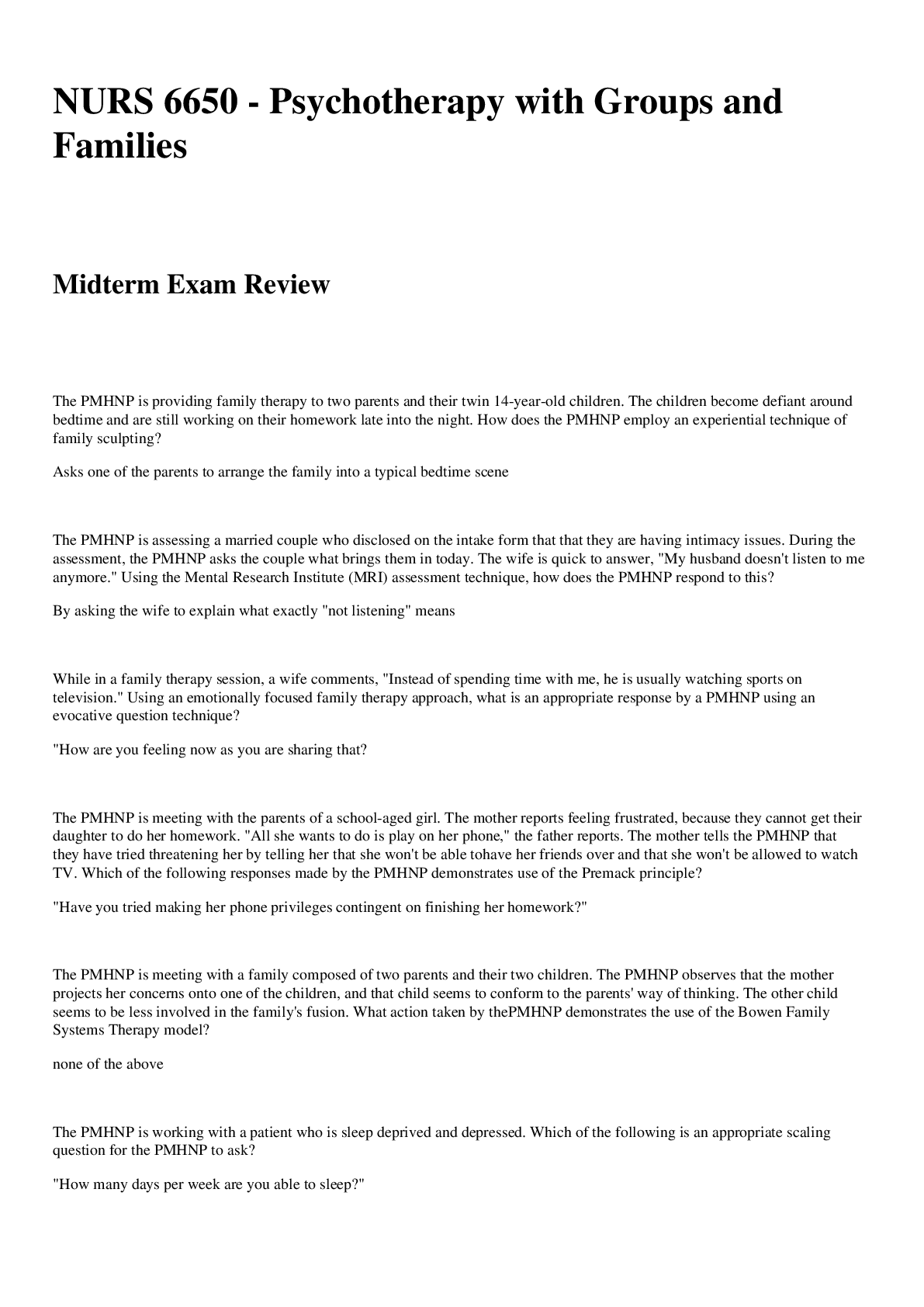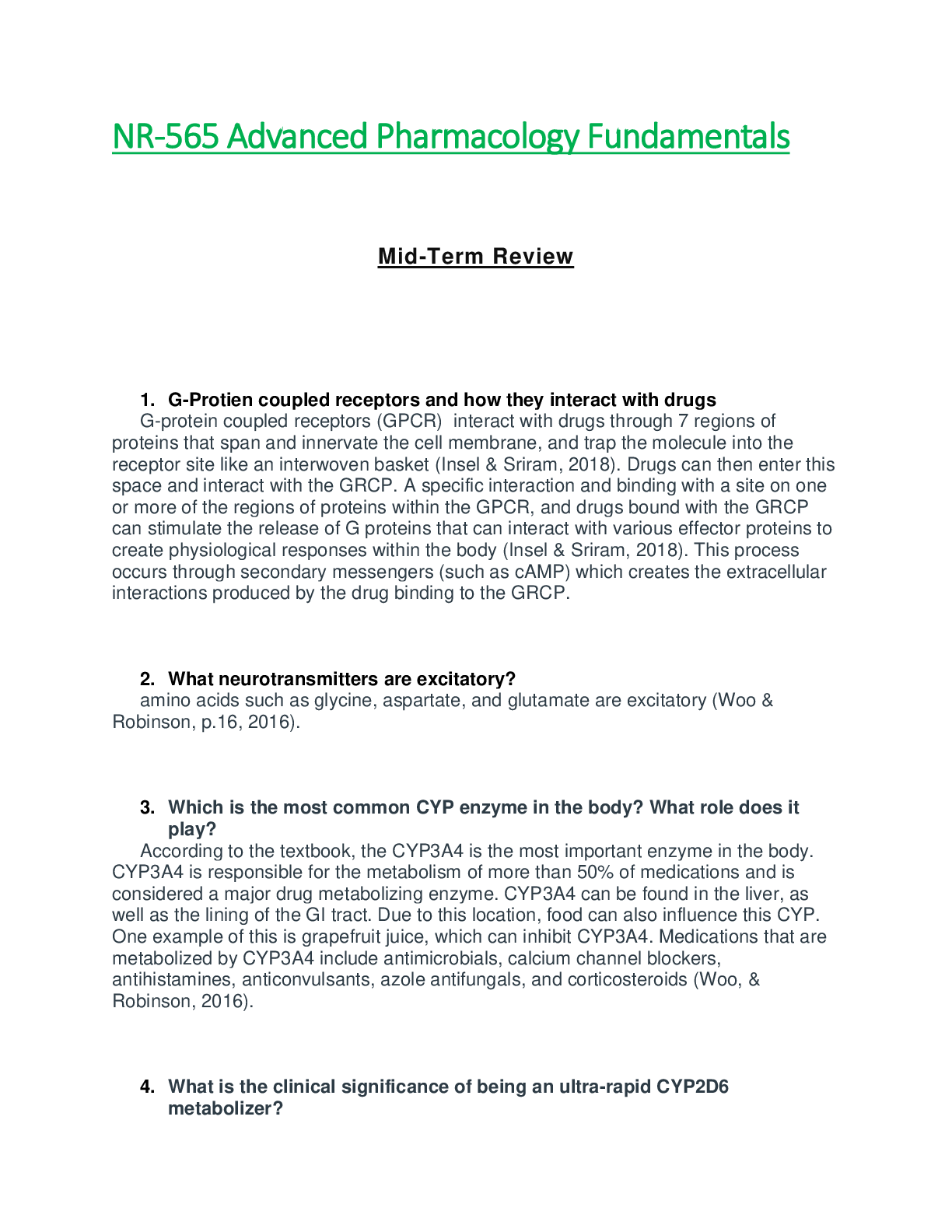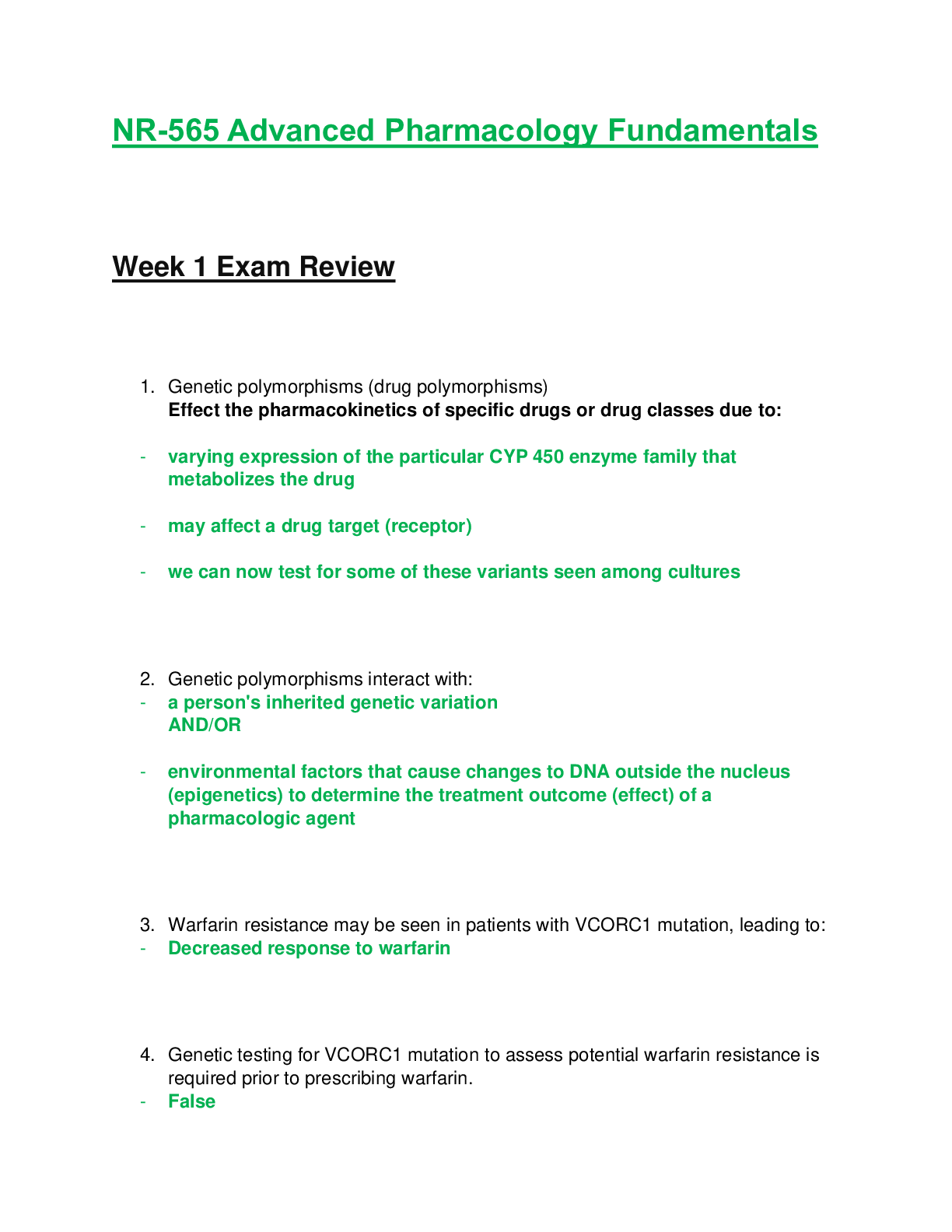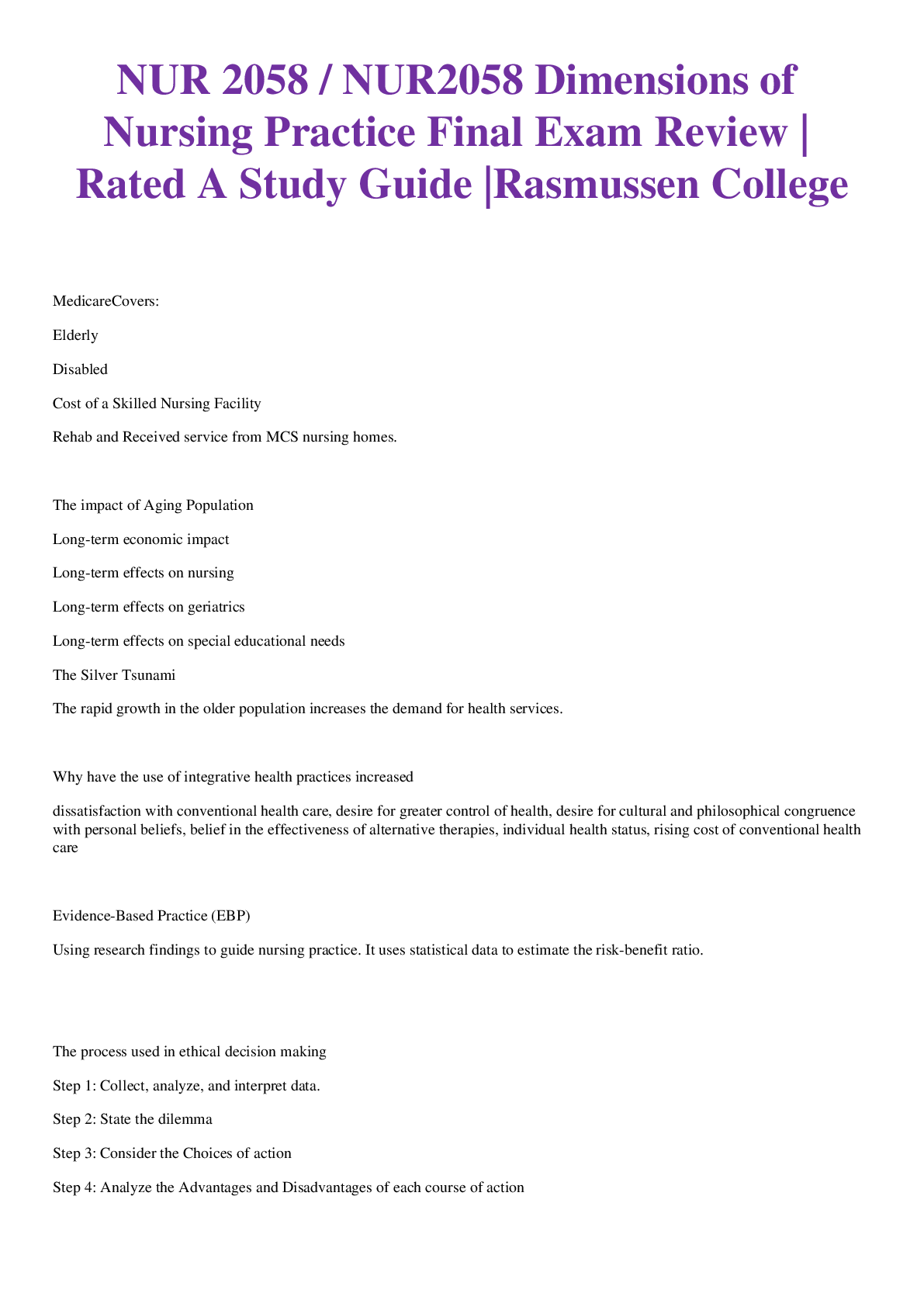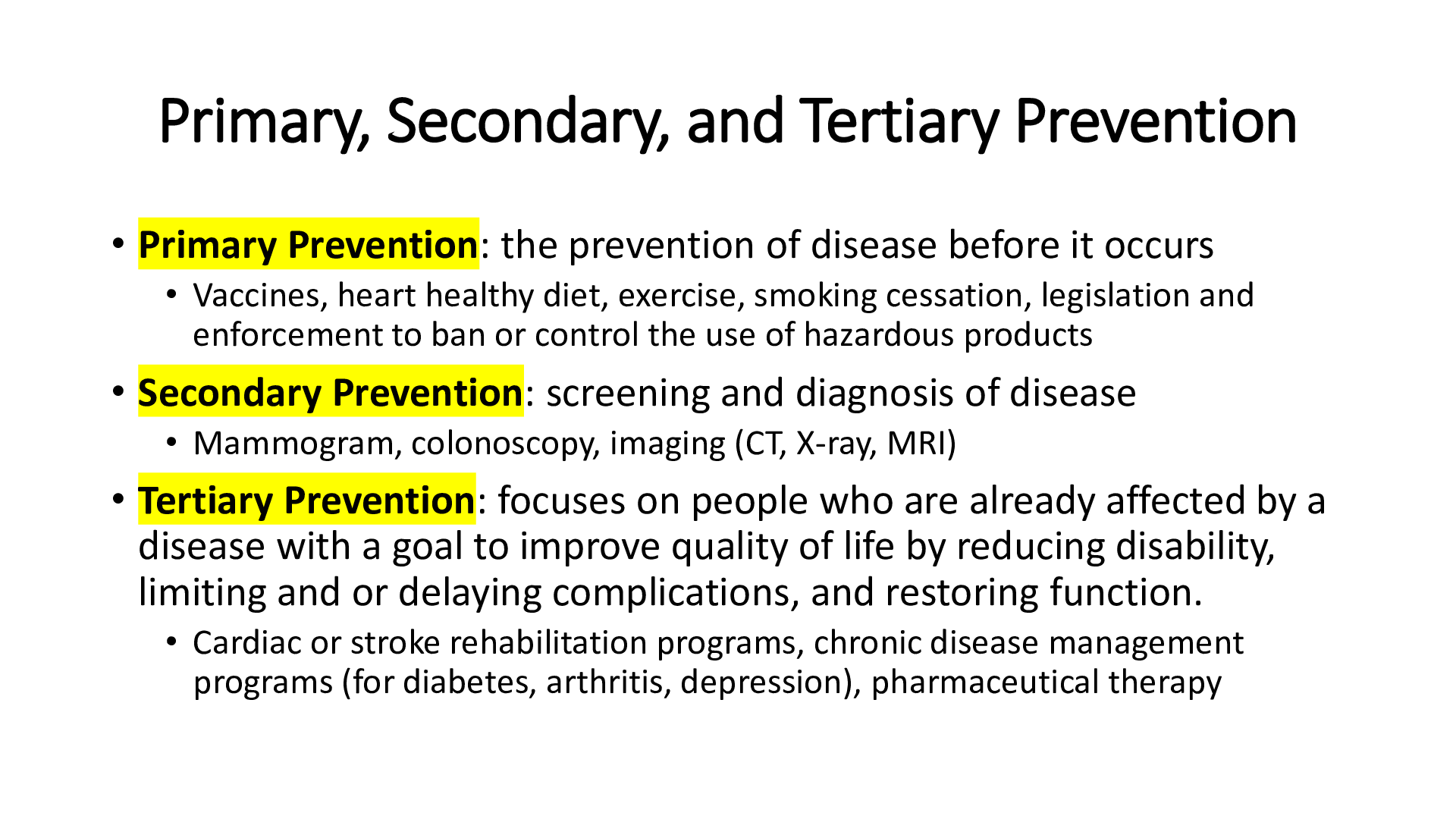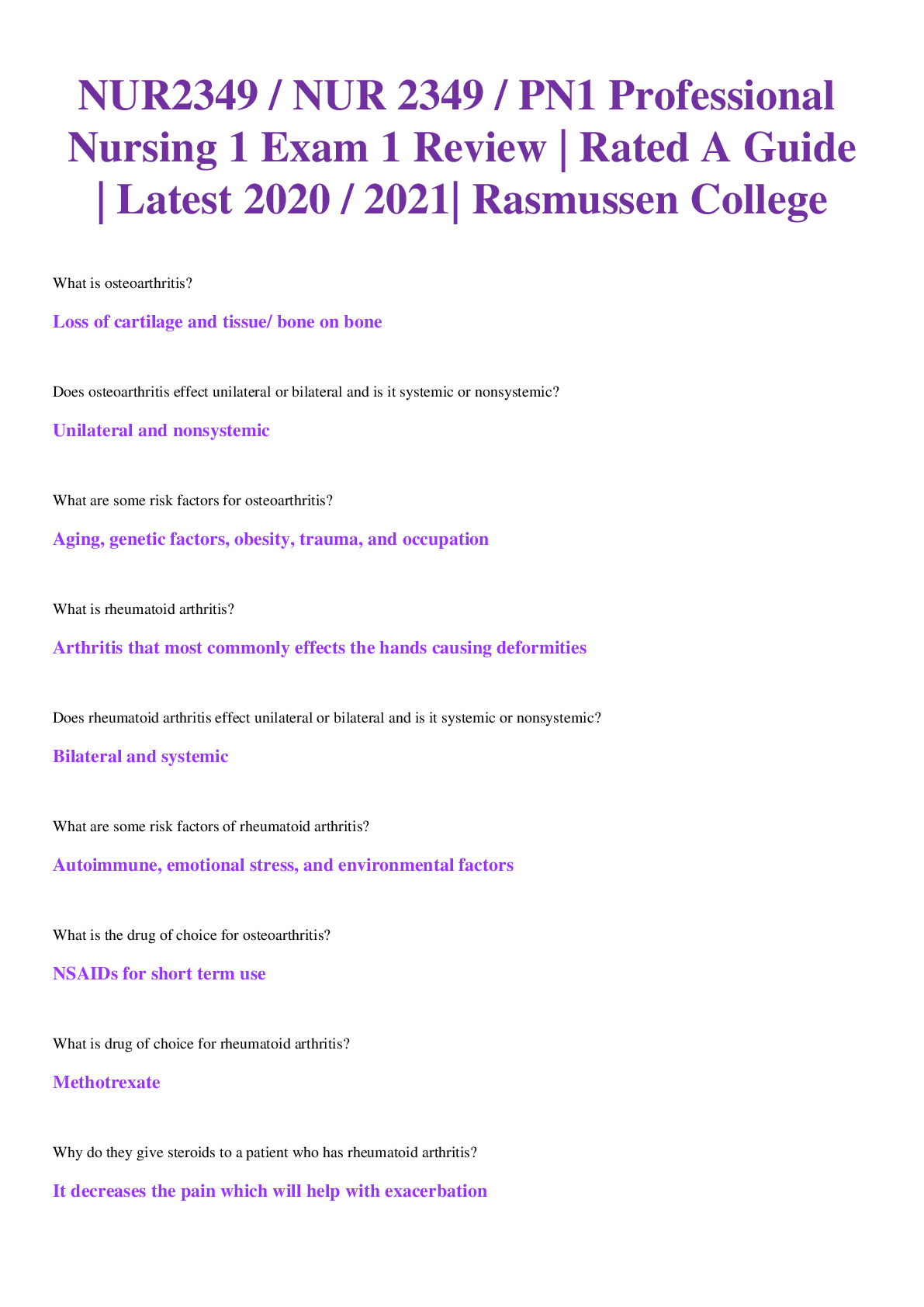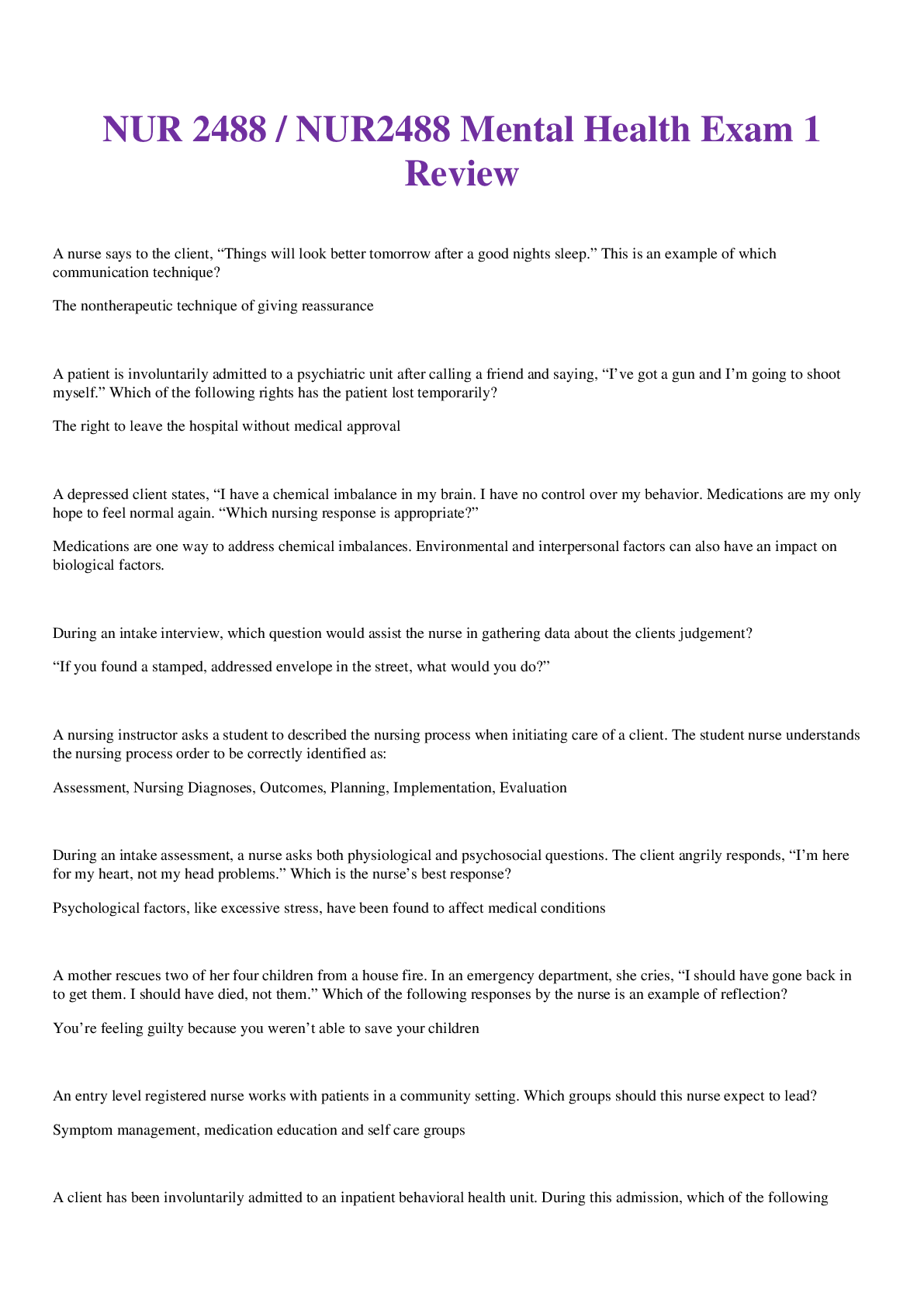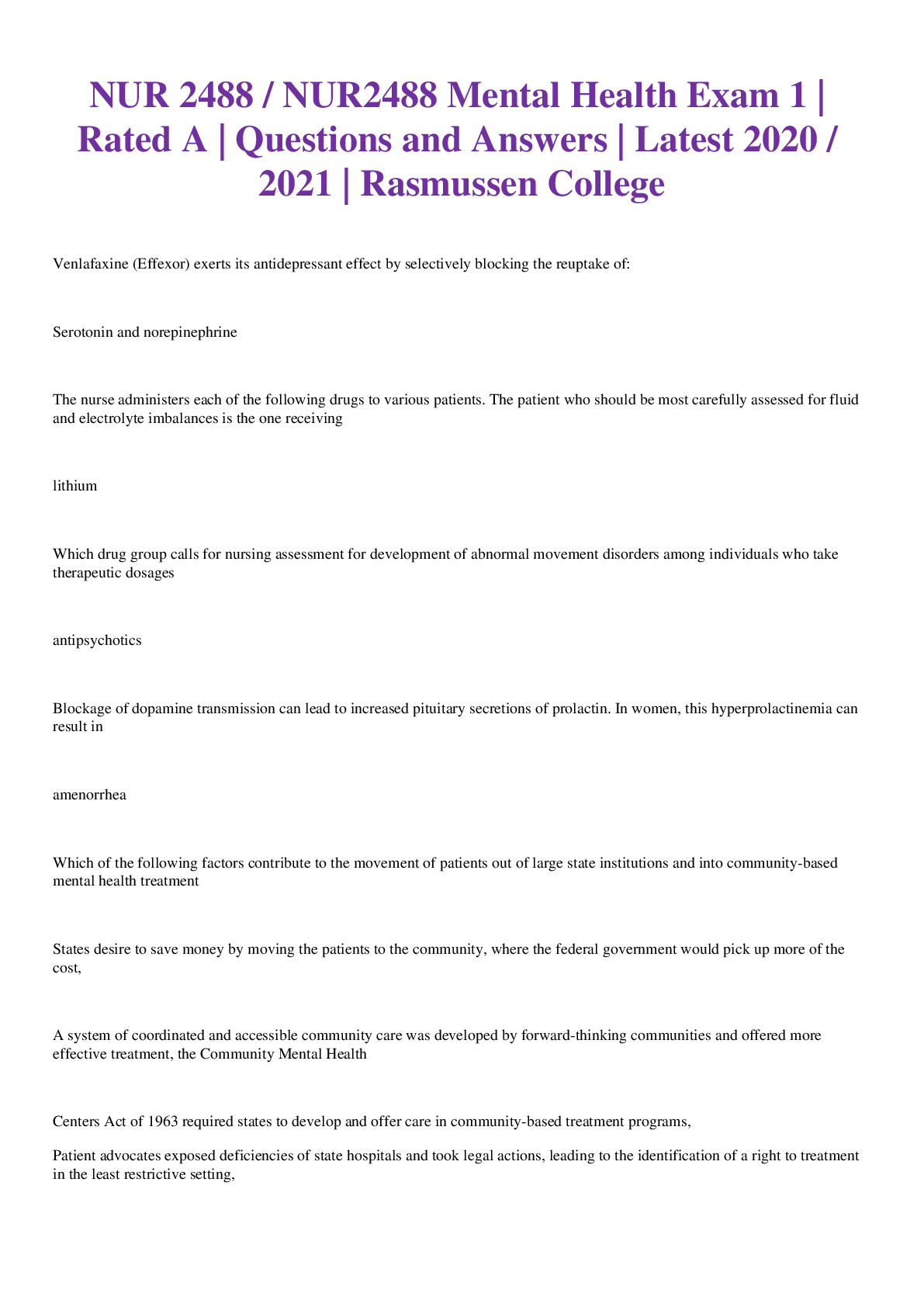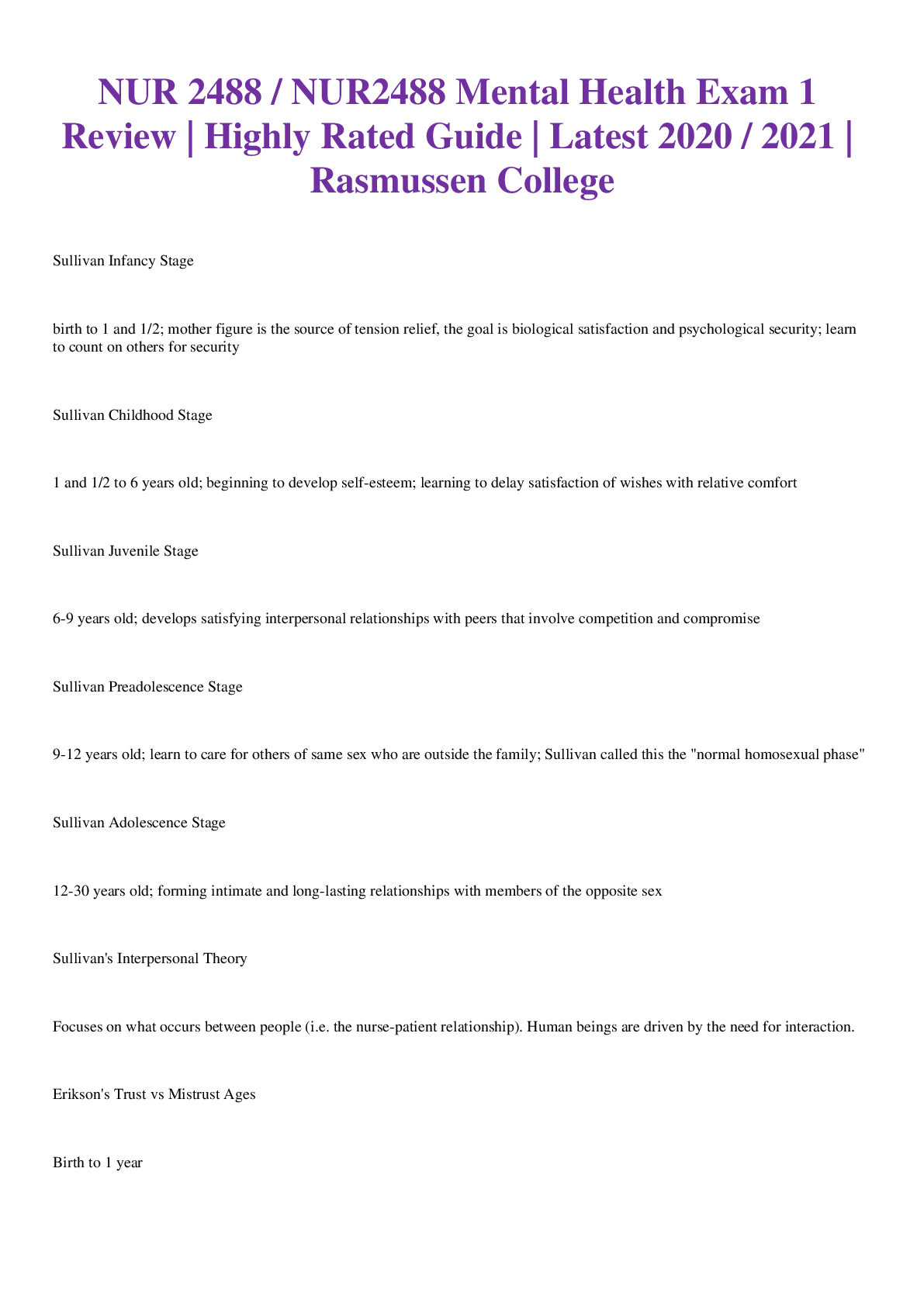*NURSING > EXAM REVIEW > Critical care exam 1 personal notes Leah (All)
Critical care exam 1 personal notes Leah
Document Content and Description Below
Critical care Chapter 3 Laws: EMTALA: Emergency room law - everyone who comes in ER room must be treated whether they have insurance or not. Torts: Doing something legally wrong Intentional: ... Assault (Verbal threats), battery (Physical harm, putting your hands on them without permission), false imprisonment (medical restraint is a necessity) (Haldol to sedate them is chemical restraint) Unintentional: Negligence (no harm to patient we just didn’t do what we were supposed to), Malpractice (when harm is done to the patient). ON TEST Dilemmas: No right or wrong Principlism is a widely applied ethical approach based on four fundamental moral principles to contemporary ethical dilemmas: respect for autonomy, beneficence, nonmaleficence, and justice. Autonomy states that all persons should be free to govern their lives to the greatest degree possible. This implies a strong sense of self-determination and an acceptance of responsibility for one's own choices and actions. To respect autonomy of others means to respect their freedom of choice and to allow them to make their own decisions. Beneficence is the duty to provide benefits to others when in a position to do so and to help balance harms and benefits. In other words, the benefits of an action should outweigh the burdens. Actions intended to benefit the patients or others. Nonmaleficence is the explicit duty not to inflict harm on others intentionally. The principle of justice requires that health care resources be distributed fairly and equitably among groups of people. Other principals The principle of veracity states that persons are obligated to tell the truth in their communication with others. The principle of fidelity requires that one has a moral duty to be faithful to the commitments made to others. These two principles, along with confidentiality, are the key to the nurse-patient relationship. Bioethics committees – Address ethical concerns. Typical membership of a bioethics committee includes physicians, nurses, chaplains, social workers, and, if available, bioethicists. Informed consent: Three elements must be present. Informed consent is not a form. It is a process that entails the exchange of information between the health care provider and the patient or patient's proxy. 1. Competence (or capacity) refers to a person's ability to understand information regarding a proposed medical or nursing treatment. Patients providing informed consent should be free from severe pain and depression. Critically ill patients usually do not have the mental capacity to provide informed consent because of the severe nature of their illness or their treatment (e.g., sedation). If the patient is not mentally capable of providing consent, informed consent [Show More]
Last updated: 1 year ago
Preview 1 out of 47 pages
.png)
Reviews( 0 )
Document information
Connected school, study & course
About the document
Uploaded On
Jul 09, 2021
Number of pages
47
Written in
Additional information
This document has been written for:
Uploaded
Jul 09, 2021
Downloads
0
Views
33

